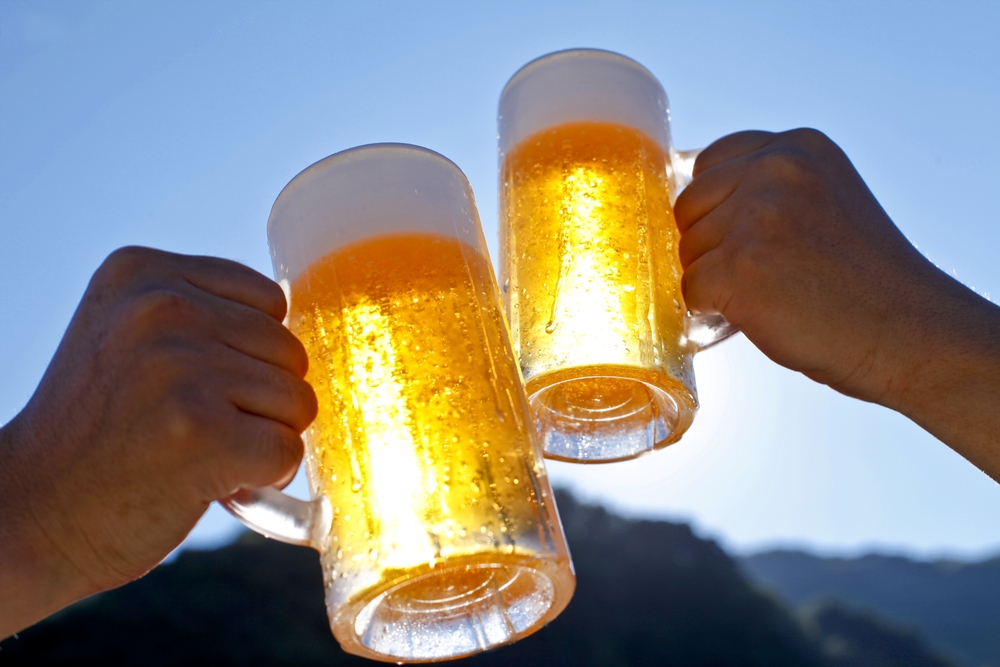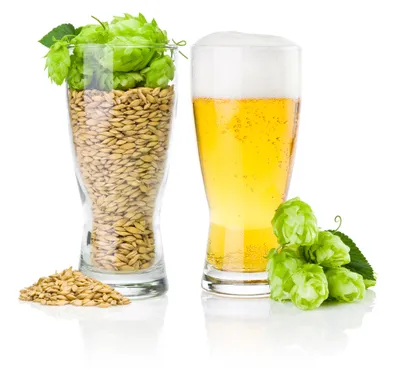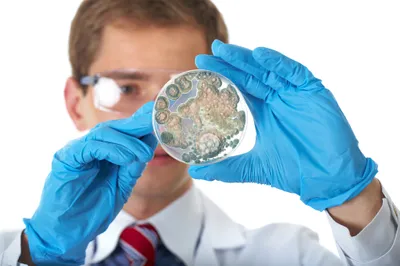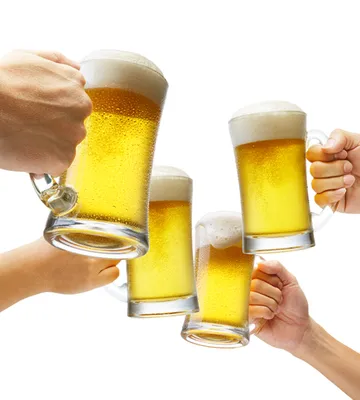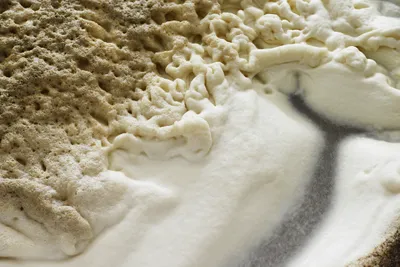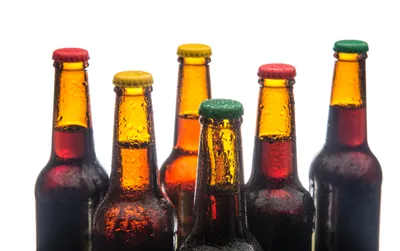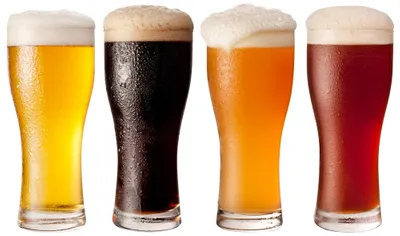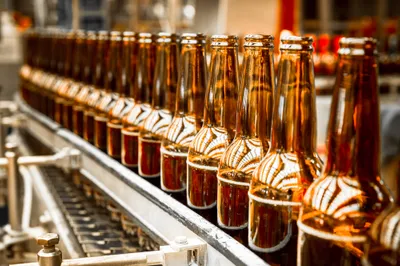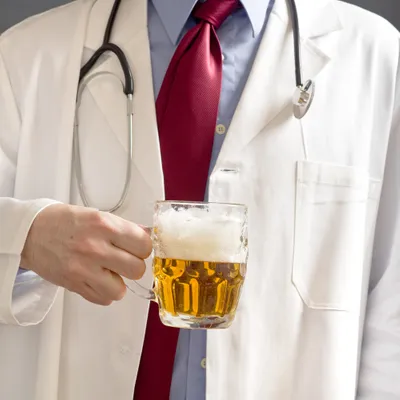Beer has been the target of a lot of criticism ever since the first sip was taken over ten thousand years ago. It’s been blamed for everything from beer bellies to the cause of vice and crime. Whether it’s warranted or not, beer and brewing has driven science and innovation throughout our history. Almost every known civilization has had some form of beer and unwrapping its mysteries has done a lot to help innovate and shape the modern world.
Here are just a few health and lifestyle contributions made possible thanks to beer. Feel free to ponder these the next time you’re sipping a cold one with your friends at the corner bar…
1. Beer Perpetuated Agricultural Revolution
Sometime around 9000-BC, in ancient Mesopotamia, groups of hunter-gatherers started settling into centralized villages, primarily to grow barley. It was a long held academic belief that the reason was to bake bread or for use as a cereal grain. A growing number of archaeologists disagree.
It was the beginning of brewing and agriculture simultaneously, according to Ohio State University Professor Patrick Hayes. “By all accounts, it most likely occurred when some early agriculturists or hunter-gatherers just neglected to bring their grain in,” says Hayes, “and left it sitting out. It got wet and germinated, stayed wet and then they drank that resulting juice. Presumably, it had a little bit of a zing to it. And that was sort of the beginning of beer and most likely agriculture.”
2. Writing was Invented Thanks to Beer
The British Museum, amongst its other artifacts, has one of the earliest known clay tablets dating from around 3000-BC. This tablet is a record of the storage and allocation of beer. Beer was an important source of nutritional storage and also used as payment for workers.
According to Associate Professor of Assyriology at the University of Pennsylvania, Dr. Stephen Tinney, “The reason for inventing writing was the need to record the production and distribution of commodities like beer.”
3. Beer Produced Early Antibiotics
In 1980, George Armelagos discovered traces of tetracycline in human remains from Nubia that dated 350-550-AD, about 1500-years before its modern discovery in 1945. This spurred Mark Nelson to experiment with the ancient bones and he found them saturated with the antibiotic. The source was from the beer drank by the ancient Nubians.
The researchers published their findings in The Journal Of Physical Anthropology, and both concluded that through fermentation, ancient Nubians were purposefully producing the drug. Not to be outdone, Charlie Bamforth of UC Davis concocted a recipe for the ancient beer. After fermentation, the beer was found loaded with tetracycline.
4. Beer: A Source of Scientific Inspiration
Joseph Priestley is best known for the discovery of oxygen. He was an ordained minister as well. In 1767, he was offered a ministry in Leeds, England. This ministry was just down the street from a brewery.
The brewery, along with its constant supply of naturally occurring carbon dioxide became a source of inspiration. In his American Chemical Society biography it states “…fermentation sparked his lifetime investigation into the chemistry of gases.” Priestley was eventually able to artificially produce effervescent water, as well as a long list of other discoveries.
5. Beer Holds Bacteria at Bay
Medieval Europe was an unhealthy place. Besides the Black Plague and leprosy constantly threatening survival, drinking water was also unsafe. The connection between human waste and drinking water as a source of sickness was yet to be established. Fortunately beer was the most popular drink at the time.
A study conducted by UC Davis used duck pond water filled with fecal coliform to brew beer. After about a week of fermentation, none of the harmful bacteria remained.
6. Beer: the Heart of Village Life
Long before you could stop in to the local tavern for a pint and a game of pool, pubs were the social center of village and rural life. The writings of Samuel Pepys went as far as describing the pub as the heart of England. These pubs were built around the desire for beer.
In colonial Massachusetts, the diary of Superior Court justice, Samuel Sewell, described court meetings and other official gatherings that occurred in the pubs of Boston and the surrounding areas. Multiple historical sources including the work, In Public Houses, by David Conroy credit pubs as the crucible for revolutionary ideas in colonial America.
7. Beer Aided Pasteurization and Germ Theory
Louis Pasteur is credited with the process that keeps milk safe, but he began his experiments with beer. According to the Encyclopedia Britannica, while working in Lille, he was asked to solve problems at the local distillery. His initial experiments were with beer and it was the first beverage known to be pasteurized.
Based on his early studies with beer, Pasteur was able to present experimental evidence that living organisms were present in all forms of fermentation. This was the basis for what is known as germ theory today.
8. Beer Discovered Refrigeration
Lager and pilsner are the most popular styles of beer in the world. They have a distinctive quality that’s crisp and refreshing. The fermentation process for lagers and pilsners, as well as the lagering process (which gives pilsner its unique taste) requires cold, nearly freezing conditions. Up until 1873, this could only occur given the right season or the expensive use of ice.
Carl von Linde made it possible for this type of beer to be brewed year round. In The Oxford Companion to Beer, it is stated that the Spaten Brewery recruited von Linde to help keep the brewery cold. That is where he invented the first mechanical refrigerator.
9. Logos Exist Because of Beer
It would be hard to imagine a world without logos. From your favorite team to a famous brand, logos color the landscape of clothing and apparel. The invention of the logo is once again, credited to beer.
Bass Ale wanted a distinctive symbol to separate it from its competitors. According to local history archives, in 1875 the UK Trademark Registration Act went into effect on new years day. One lucky employee spent the night camped out in front of the registrar’s office and the familiar Bass triangle became the first registered trademark.
10. Beer Pioneered Brand Marketing
Marketing is pervasive in all aspects of life. The value of goods and services are primarily based on success in the marketing field. As well as their iconic logo, Bass was also a pioneer in brand marketing.
Bass made their product appealing to all walks of life. Zythophile.co.uk estimates that in 1877 Bass produced 1,000,000-barrels a year, and was the largest brewery in the world. Bottles of Bass Ale are even seen in Manet’s A Bar at the Folies-Bergere, painted in 1882.
11. Beer Revolutionized Factory Automation
Everything from pens to automobiles is produced on assembly lines with the help of automated machinery. These machines keep prices low and make it safer for the assembly workers. Years before Henry Ford revolutionized the automobile industry, Michael Owens did the same for beer bottle production.
According to Glass in Northwest Ohio, the Owens Machine was capable of producing 12-bottles a minute in 1903. With improvements, it was capable of producing 50-bottles a minute by 1912. All because of the high demand for bottled beer.
12. The Medicinal Benefits of Beer
For centuries beer has been an important nutritional staple for explorers, travelers, and people lacking access to clean water. It has been a way of storing the nutrients from grains for those without access to modern techniques of preservation. But studies show that moderate consumption of beer can also provide many healthy benefits.
A Dutch study, with findings published on WebMD, concluded that beer is a source of vitamin B1, B2, B6, B12. Additionally, a 2009 Tufts study found that elevated silicon levels in beer contribute to bone density. Finally, a Finnish study, published in the Clinical Journal of the American Society of Nephrology, estimates that one beer cap decreases your chances of kidney stones by 40-percent.
